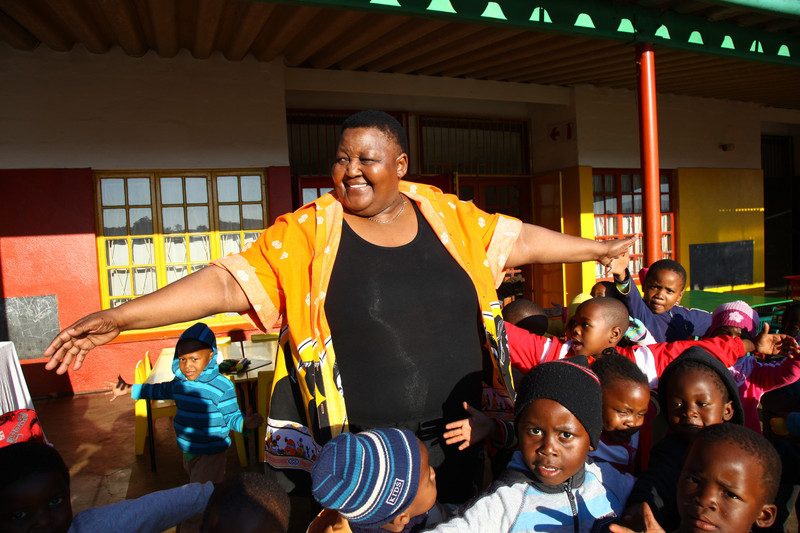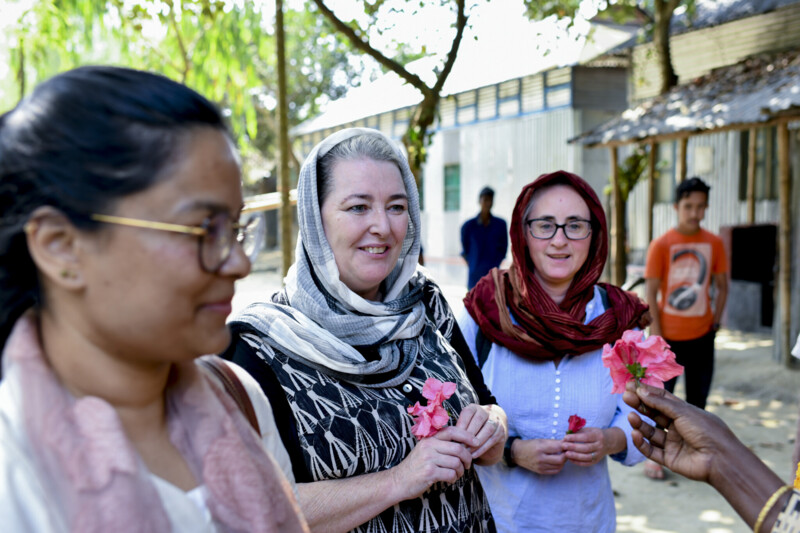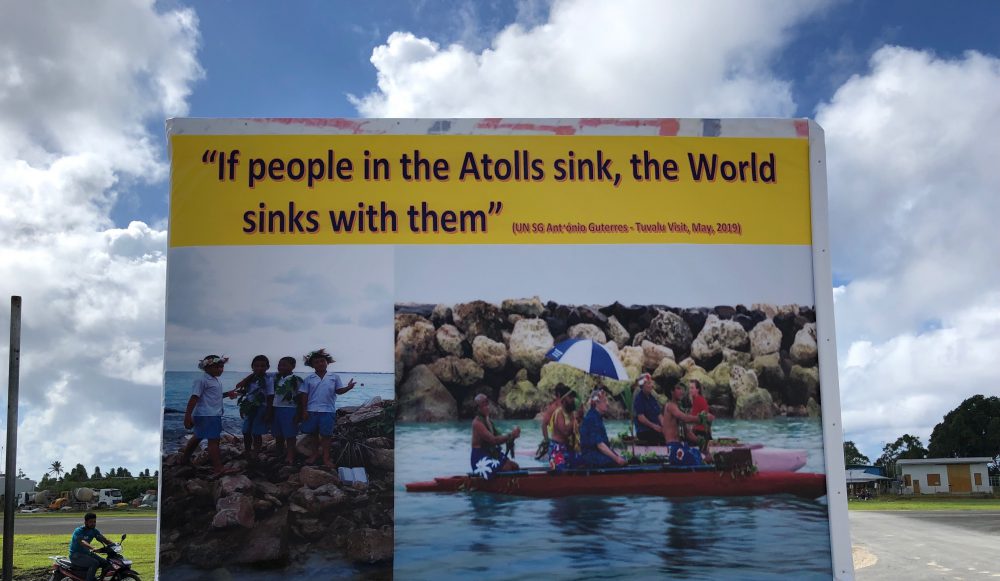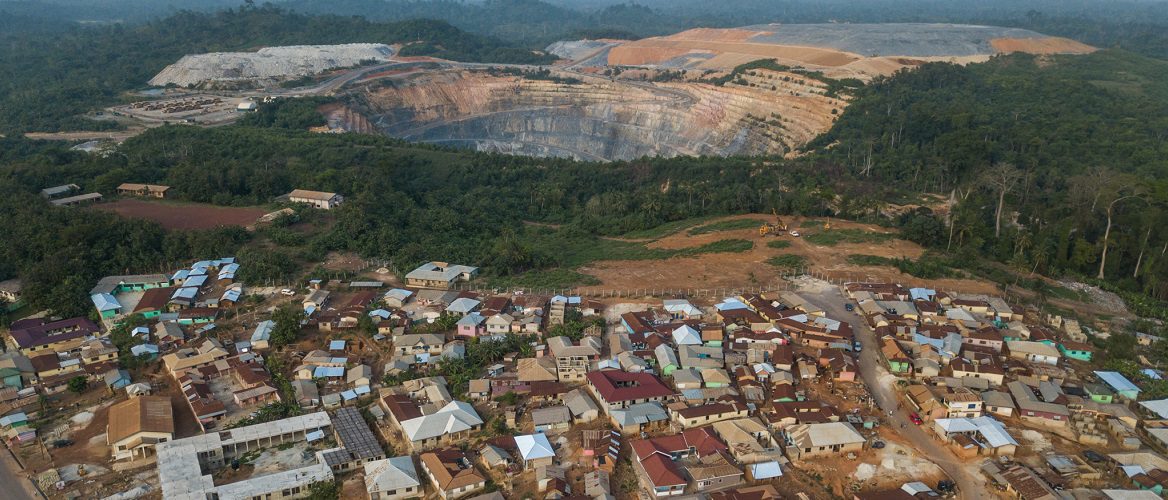Principal of Khulakahle David Beare Centre in Durban, Nokuthula Francis Zulu is passionate about her work and the kids — aged up to four years — she cares for in her crèche.
Committed to protecting the rights and needs of local children, Oxfam partner Save the Children KwaZulu-Natal (SCKZN) provides support to crèches and care centres throughout KwaZulu-Natal province — Nokuthula’s crèche among them.
After meeting Nokuthula at Khulakahle David Beare Centre, interviewer Gladys Ryan noted: “It says something about the pride people take in the school that the educators and helpers all wear the same uniform. The play area is big and bright and pretty. So are the classrooms. The supervisor has a big personality and there is a sense of camaraderie between her and the mothers who visit.”
Here, Nokuthula talks about the triumphs and tribulations of running a crèche in a poor Durban neighbourhood.
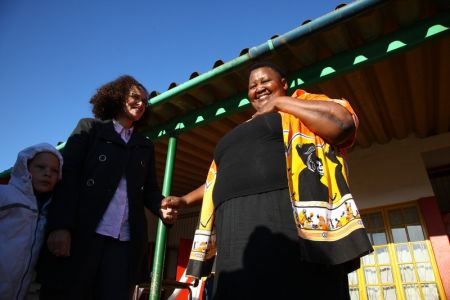
Growing well
Would you please tell us about your crèche?
My crèche has been here for a very long time … There was a need in this community for this kind of facility so we decided to make it happen.
Its name is Khulakahle David Beare Centre. Khulakahle means ‘grow well’: it’s for the children to grow well. David Beare is the person who donated this building to the community. He is from the Beare Foundation in Durban. They donated this place in 1982 and they are so proud of it because it’s up and running and the community loves it.
Did you start it on your own?
I was actually a volunteer here and there was someone else who was principal. When I came she decided to go, because I came with power, passion and love and I think she couldn’t match me so she decided to go for greener pastures.
How many children do you have here?
200
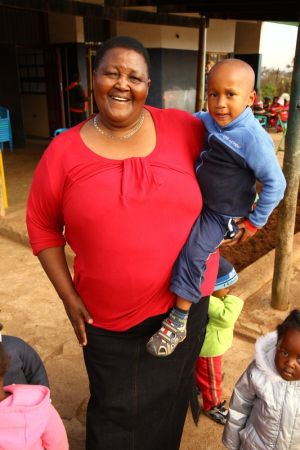
Can you describe an average day at the school?
The day is so exciting because we have a structured daily program. The children know what to do and the teachers are well trained; they know how to keep the day running.
There are so many activities. The children draw, paint — they do whatever. It is a very happy day when you are here.
How do you like running this centre?
I fail to explain how I feel. It’s a blessing from above because you see kids from different backgrounds, you laugh. It’s just like that.
“We will overcome”
What is the social background of these kids’ parents?
That’s a sad issue because parents who come here are school children and grannies. That’s the problem. Parents are not working and grannies are not working and they get the money from the pensions.
If they are not working they can’t pay school fees. But thanks to DoSD (Department of Social Development) because they are funding the food.
Most parents are not employed but they do come to the school to help in the garden and to help with washing dishes.
What other challenges do you face?
My biggest challenge is the parents because they are coming from poverty. There is a lot of poverty in our community, and HIV and AIDS are killing us because some children are ill and we are glad the parents are able to tell us. This is the only challenge we are faced with, but we will overcome it. It’s a sad thing. Some of the children are from child-headed homes. The parents are dead and you have to be very careful when you deal with them.
Save the Children
What is your relationship with Save the Children? When did it start and what difference has it made?
It started a long time ago … The relationship is very good because Mari is always trying to make us feel at home.
Save the Children is helping with training and workshops for cooks and gardeners.
Actually we have a box from Save the Children — the resource kit — it is really helpful to other crèches because they come here to get the information. All the DoSD requirements, the staff documents, everything is there and it’s through the help of Save the Children.
They have taught us to work together as a team.
Tell us about your involvement with the SCKZN Area Crèche Chairpersons’ Forum? (NB: the forum is a Save the Children initiative for crèche principals in the area to come together to compare notes and suggestions about the challenges, opportunities and successes they’ve experienced)
I am very involved. It is nice to be in the forum. We meet every month with other forums and Save the Children of course. And we discuss all the issues that are related to what we are doing. It’s such a good thing because the information we get there is disseminated to all crèches.
How else does SCKZN support you?
Save the Children has created a book for 0–4 year-olds. It is a very good book. It helps a lot when teaching the kids (before that, we didn’t have books to teach for this age group). They have done wonders by creating this book and they are also helping us with the Children’s Act, children’s rights, whatever information is coming from government.
What changes would you like to see?
With my school I would like to see so many changes. The school is big but there are so many children and we need an extra classroom for that, and we need parents to be more involved in whatever we do.
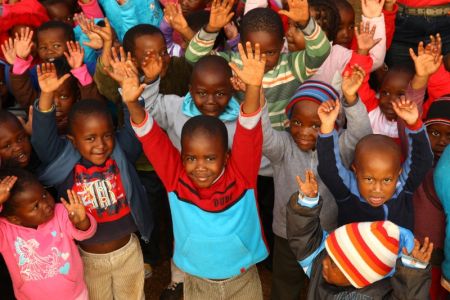
Find out more
Read our interview with the Director of Refugee Social Services (RSS), Yasmin Rajah
Read our interview with Teresa, the principal of another creche
Learn more about our work keeping vulnerable children in South Africa safe
Your donation will help support refugee women setting up home-based creches
